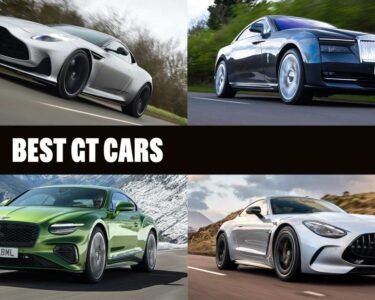In the fiercely competitive landscape of electric vehicles (EVs), German luxury car manufacturer BMW (OTCMKTS: BMWYY) has emerged as a surprising frontrunner, outpacing rivals Mercedes (OTCMKTS: MBGYY) and Audi (OTCMKTS: VWAGY ). This success story, however, had humble beginnings marked by initial setbacks that ultimately became valuable lessons for the automaker.
BMW’s journey into the world of EVs began in 2008 with ambitious plans to develop an electric city car from scratch. The result was the i3, introduced five years later, boasting distinctive features such as rear-hinged back doors and a carbon fiber frame. Despite its unique design, the i3 faced challenges in the market due to its high price tag and limited range, leading to subdued sales.
Disheartened by the lukewarm reception, BMW temporarily slowed its EV plans, prompting criticism and soul-searching within the company.
However, BMW’s setback did not deter its commitment to electric mobility. Instead, the company embarked on a period of introspection, reassessing its approach to EVs. The criticism of stalling on EVs spurred BMW to adopt a less radical strategy. They’re focusing on integrating electric technology seamlessly into its existing lineup.
This shift in approach proved pivotal. It is allowing BMW to develop EVs that closely resembled their combustion engine counterparts, manufactured on the same assembly lines to streamline production and contain costs.
Read more: World SMR pipeline expands by 65% since 2021; uranium supply challenges persist
Read more: NexGen Energy discovers localized high grade uranium at Patterson Corridor East
BMW reaping the rewards
BMW’s revised strategy has paid off handsomely, with the company surpassing its competitors in EV sales. In the first quarter, BMW shipped more than double the number of EVs compared to Audi and significantly more than the Mercedes-Benz Group.
This success is attributed to BMW’s ability to leverage over a decade’s worth of EV knowledge and seamlessly integrate it into its current model lineup, earning praise for maintaining the essence of the “Ultimate Driving Machine” mantra in its EVs.
BMW’s triumph in the EV market is particularly noteworthy amidst a broader slowdown in EV demand, especially in Europe where government subsidies are being reduced. Despite these headwinds, BMW’s strategic approach has allowed it to weather the storm and continue its upward trajectory in EV sales. In contrast, competitors like Mercedes have faced challenges such as the phase-out of models like the Smart Fortwo and low demand in key markets like Germany.
BMW’s journey from initial setbacks to becoming a leader in the EV market exemplifies the power of resilience and adaptation in the face of adversity. BMW has not only overcome obstacles but has also carved out a distinct advantage over its rivals.
As the automotive industry continues its shift towards electrification, BMW’s success story serves as a testament to the importance of innovation, perseverance, and strategic foresight in driving sustainable growth and competitiveness.
zartasha@mugglehead.com




